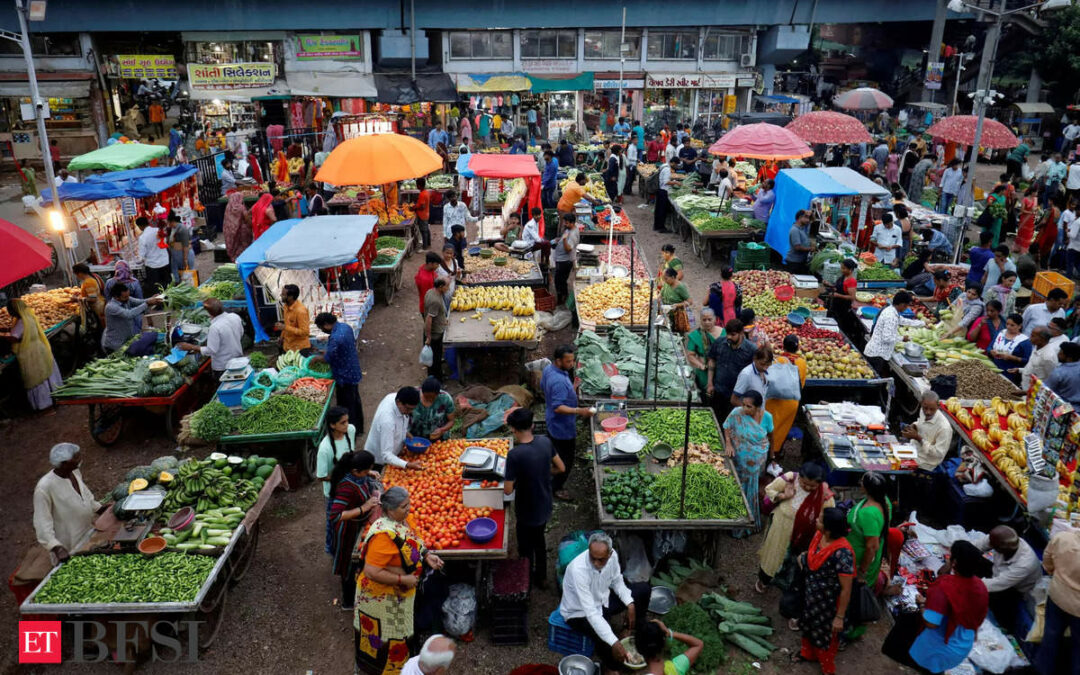India’s retail inflation likely eased to a three-month low of 5.09% in January on slowing food price rises and favourable base effects, according to economists polled by Reuters who also predicted a moderation in core inflation to 3.70%.
The Reserve Bank of India, which held its repo rate at 6.50% for a sixth consecutive meeting on Feb. 8, highlighted “large and repetitive food price shocks” as one of the biggest risks to the ongoing disinflation trend.
After surging since November, food prices, which make up about half of the consumer price index (CPI) basket, eased last month, according to economists in the Feb. 5-8 Reuters poll.
Headline inflation, as measured by the annual change in the CPI, was forecast to fall to 5.09% in January from 5.69% in December, the survey of 44 economists showed.
That would still be above the 4% mid-point of the central bank’s medium-term target of 2%-6%.
“We expect inflation in India eased in January on still elevated but falling food price growth,” said Alexandra Hermann, lead economist at Oxford Economics.
“Base effects, softening food price growth, and lower oil prices due to weak market fundamentals should provide further relief to headline inflation in the coming months.”
Inflation will average 5.4% this fiscal year and 4.7% in the next, a separate Reuters poll showed, close to the RBI’s forecasts of 5.4% and 4.5%.
Core inflation, which strips out volatile food and energy prices, likely fell further from December’s four-year low of 3.80% to 3.70% in January, according to the median forecast of 22 economists.
The Indian government does not release core inflation figures.
“Core inflation has come down to a comfort zone below 4% and we believe it is likely to be stable in the near term despite pressures on food inflation, if any,” said Suman Chowdhury, chief economist at Acuite Ratings and Research.
Still, the RBI is expected to leave its key policy rate unchanged until at least end-June before cutting it by 25 basis points in each of the third and fourth quarters, a relatively small move compared with expectations for other global central banks’ easing cycles.










